Filter interviews by
Simar Infrastructures Site Engineer Interview Questions and Answers
Simar Infrastructures Site Engineer Interview Experiences
1 interview found
(4 Questions)
- Q1. Power plant operation And maintenance
- Q2. Thermal power plant operation
- Ans.
Thermal power plant operation involves the generation of electricity using heat energy from burning fossil fuels.
Thermal power plants use fossil fuels like coal, oil, or natural gas to produce steam.
The steam is used to rotate a turbine, which drives a generator to produce electricity.
The process involves several components such as boilers, turbines, condensers, and cooling towers.
Thermal power plants require a constan...
- Q3. Personal and operation
- Q4. Plant operation
Top trending discussions






Interview questions from similar companies
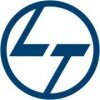
I applied via Job Fair and was interviewed in Oct 2024. There were 3 interview rounds.
(2 Questions)
- Q1. Columns staircase foundation
- Q2. Beam one way slab ,two way slav
- Ans.
One way slab is supported on two opposite sides, while two way slab is supported on all four sides.
One way slab is designed to carry loads predominantly in one direction.
Two way slab is designed to carry loads in both directions.
One way slab is more economical for smaller spans, while two way slab is more suitable for larger spans.
Examples: One way slab - balcony, corridor. Two way slab - office building, parking garag
(2 Questions)
- Q1. Site related experience bracket wall
- Q2. Survey auto level total station
(2 Questions)
- Q1. Bbs, drawing reading
- Q2. Stairs drawing reading

Site Engineer Interview Questions & Answers
Ramky Infrastructureposted on 20 Jul 2024
(2 Questions)
- Q1. Size of steel used for columns
- Ans.
The size of steel used for columns depends on the load it needs to support and the height of the column.
The size of steel columns is typically specified by their dimensions in terms of width, depth, and thickness.
The size of steel columns can also be determined based on the structural design calculations and building codes.
Common sizes for steel columns include W6x9, W8x10, and W10x12, where the first number represents...
- Q2. Development bars length
- Ans.
Development bars length refers to the length of reinforcement bars used in construction to provide strength and stability.
Development bars length is determined based on structural design requirements.
It is important to follow the specifications provided by the structural engineer.
The length of development bars can vary depending on the type of structure and load requirements.
Proper placement and anchoring of developmen
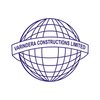
(3 Questions)
- Q1. What is retrofitting? ??
- Ans.
Retrofitting is the process of adding new technology or features to older systems or structures to improve performance or functionality.
Retrofitting is commonly done to improve energy efficiency in buildings by adding insulation or upgrading HVAC systems.
It can also involve strengthening structures to meet current safety standards, such as earthquake retrofitting for older buildings.
Retrofitting may include adding new ...
- Q2. What is bitumen ??
- Ans.
Bitumen is a sticky, black, highly viscous liquid or semi-solid form of petroleum. It is used in road construction and waterproofing.
Bitumen is a byproduct of crude oil refining.
It is commonly used in road construction for asphalt pavements.
Bitumen is also used in waterproofing products such as roofing felt and sealing compounds.
- Q3. What is cantilever beam??
- Ans.
A cantilever beam is a beam that is supported at only one end, with the other end projecting freely into space.
Supported at one end, projecting freely into space
Commonly used in construction for balconies, bridges, and diving boards
Experiences bending and shear forces
Interview Preparation Tips

I applied via Company Website and was interviewed in Aug 2023. There was 1 interview round.
(3 Questions)
- Q1. Cement ka grade
- Q2. Cancrete M20 retio
- Q3. What is tha water cement ratio
- Ans.
Water cement ratio is the ratio of the weight of water to the weight of cement used in a concrete mix.
Water cement ratio affects the strength and durability of concrete.
Lower water cement ratio results in stronger concrete but may be difficult to work with.
Typical water cement ratio ranges from 0.4 to 0.6 for normal strength concrete.
Excess water can lead to lower strength and durability of concrete.
Interview Preparation Tips
Request company
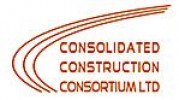
Site Engineer Interview Questions & Answers
Consolidated Construction Consortiumposted on 2 May 2022
(1 Question)
- Q1. Some basic questions which is related to works
(1 Question)
- Q1. Nat any thing just all basic of working details
Interview Preparation Tips

Site Engineer Interview Questions & Answers
ARSS Infrastructure Projectsposted on 18 Apr 2022
I applied via Company Website
(1 Question)
- Q1. How much year experience
- Ans.
I have 5 years of experience as a Site Engineer.
I have worked on various construction projects, overseeing the site operations and ensuring adherence to plans and specifications.
During my tenure, I have successfully managed teams, coordinated with subcontractors, and resolved on-site issues.
I am well-versed in interpreting blueprints, conducting quality inspections, and ensuring compliance with safety regulations.
One n...
Interview Preparation Tips

I applied via Naukri.com and was interviewed in Mar 2024. There were 2 interview rounds.
Diploma in mechanical engineering thermal engineering or manufacturing
(7 Questions)
- Q1. Thermodynamics law
- Ans. 1st Law of Thermodynamics - Energy cannot be created or destroyed. 2nd Law of Thermodynamics - For a spontaneous process, the entropy of the universe increases. 3rd Law of Thermodynamics - A perfect crystal at zero Kelvin has zero entropy.
- Q2. Gear and type four stock and two stock
- Ans. The main difference between a 4-stroke engine and a 2-stroke engine is that a 4-stroke engine goes through four stages, or two complete revolutions, to complete one power stroke, while a 2-stroke engine goes through 2 stages, or one complete revolution, to complete one power stroke.
- Q3. Stress and strain or strain and stress graph
- Ans. The Stress-Strain curve is a type of graph plotted between “stress and strain”. This graph explains the relationship between “stress and strain” of different materials when tensile stress is applied to them. This curve is plotted on the basis of an experimental result.
- Q4. Types of mechanical properties
- Ans.
Mechanical properties refer to the behavior of materials under applied forces.
Strength - ability to withstand applied stress without failure
Hardness - resistance to deformation or scratching
Elasticity - ability to return to original shape after deformation
Ductility - ability to deform without breaking
Toughness - ability to absorb energy before fracturing
- Q5. Types of heat treatment
- Ans.
Heat treatment is a process used to alter the physical and sometimes chemical properties of a material through heating and cooling.
Annealing: heating a material to a specific temperature and then slowly cooling it to relieve internal stresses and increase ductility
Quenching: rapid cooling of a material to increase hardness
Tempering: heating a material to a specific temperature and then cooling it to improve toughness
No...
- Q6. Heat transfer and types
- Ans.
Heat transfer is the movement of heat from one object to another due to a temperature difference.
There are three main types of heat transfer: conduction, convection, and radiation.
Conduction is the transfer of heat through a material without any movement of the material itself.
An example of conduction is when a metal spoon in a hot cup of tea becomes hot.
Convection is the transfer of heat through the movement of fluids...
- Q7. Types of lathe machine
- Ans.
Types of lathe machines include engine lathe, turret lathe, and center lathe.
Engine lathe is the most common type used for general purpose turning.
Turret lathe has a turret tool post for quick tool changes.
Center lathe is used for precision work and has a tailstock for support.
Other types include automatic lathe, CNC lathe, and vertical lathe.

I applied via Naukri.com and was interviewed in Nov 2021. There were 5 interview rounds.
Interview Questionnaire
5 Questions
- Q1. About yourself and why you join our organisation?
- Q2. About Tunnel and your specific field
- Q3. How to working inTunnel
- Ans.
Working in a tunnel involves various tasks such as planning, excavation, ventilation, and safety measures.
Planning and designing the tunnel layout
Excavating the tunnel using appropriate methods and equipment
Ensuring proper ventilation to maintain air quality
Implementing safety measures to prevent accidents
Monitoring and maintaining the tunnel's structural integrity
Coordinating with other professionals involved in the p...
- Q4. Specifications of IS Code
- Ans.
IS Code refers to Indian Standards Code, which are specifications and guidelines for various engineering practices in India.
IS Code stands for Indian Standards Code.
It is a set of specifications and guidelines for various engineering practices in India.
IS Codes cover a wide range of topics such as construction materials, design criteria, testing methods, safety standards, etc.
These codes are developed and maintained by...
- Q5. SALARY DISCUSSION

Site Engineer Interview Questions & Answers
Larsen & Toubro Limitedposted on 29 Nov 2024
(1 Question)
- Q1. How do you guys handle emergency situations?
- Ans.
We have a designated emergency response team trained to handle various emergency situations.
Designated emergency response team trained for various emergency scenarios
Regular emergency drills and training sessions to ensure preparedness
Established communication protocols to quickly coordinate response efforts
Access to emergency supplies and equipment for immediate assistance
Collaboration with local authorities and emerg
Simar Infrastructures Interview FAQs
Tell us how to improve this page.
Simar Infrastructures Interviews By Designations
- Simar Infrastructures Safety Officer Interview Questions
- Simar Infrastructures Assistant Project Manager Interview Questions
- Simar Infrastructures Desk Engineer Interview Questions
- Simar Infrastructures Electrical Engineer Interview Questions
- Simar Infrastructures Engineer Interview Questions
- Simar Infrastructures Mechanical Maintenance Engineer Interview Questions
- Simar Infrastructures Project Manager Interview Questions
- Simar Infrastructures QA QC Engineer Interview Questions
- Show more
Interview Questions for Popular Designations
- Civil Site Engineer Interview Questions
- Electrical Site Engineer Interview Questions
- Senior Site Engineer Interview Questions
- Site Supervisor Interview Questions
- Site Engineer Mechanical Interview Questions
- Senior Civil Site Engineer Interview Questions
- Site Execution Engineer Interview Questions
- Site Incharge Interview Questions
- Show more
Site Engineer Interview Questions from Similar Companies
Simar Infrastructures Site Engineer Reviews and Ratings
based on 2 reviews
Rating in categories
|
Senior Engineer
37
salaries
| ₹3.1 L/yr - ₹5 L/yr |
|
Mechanical Engineer
33
salaries
| ₹2.4 L/yr - ₹5 L/yr |
|
Safety Officer
20
salaries
| ₹2.4 L/yr - ₹5 L/yr |
|
Mechanical Maintenance Engineer
19
salaries
| ₹1.8 L/yr - ₹6 L/yr |
|
Store Incharge
13
salaries
| ₹2 L/yr - ₹3.8 L/yr |

Larsen & Toubro Limited

Tata Projects
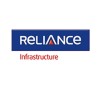
Reliance Infrastructure
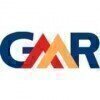
GMR Group
Calculate your in-hand salary
- Home >
- Interviews >
- Simar Infrastructures Interview Questions >
- Simar Infrastructures Site Engineer Interview Questions




